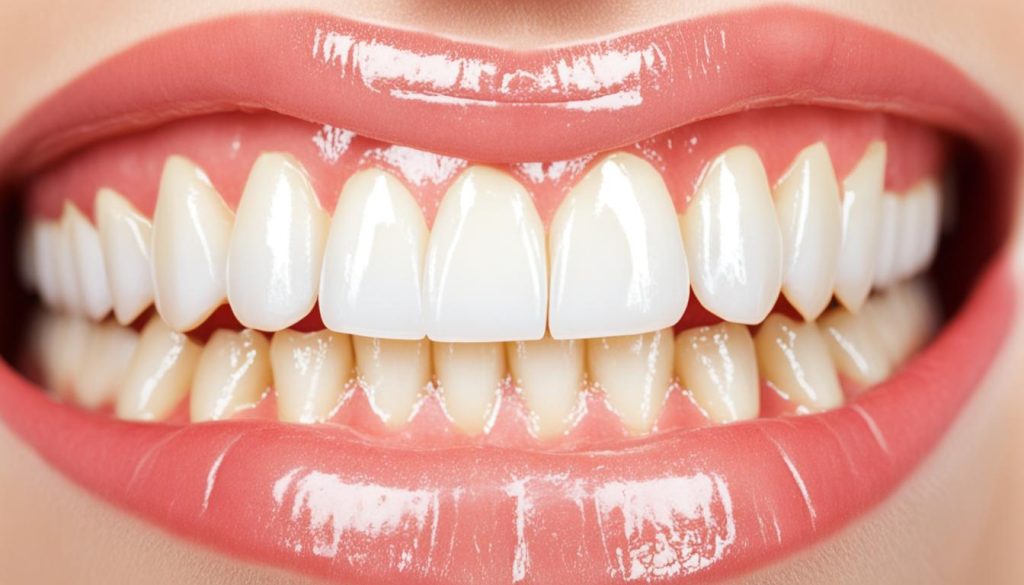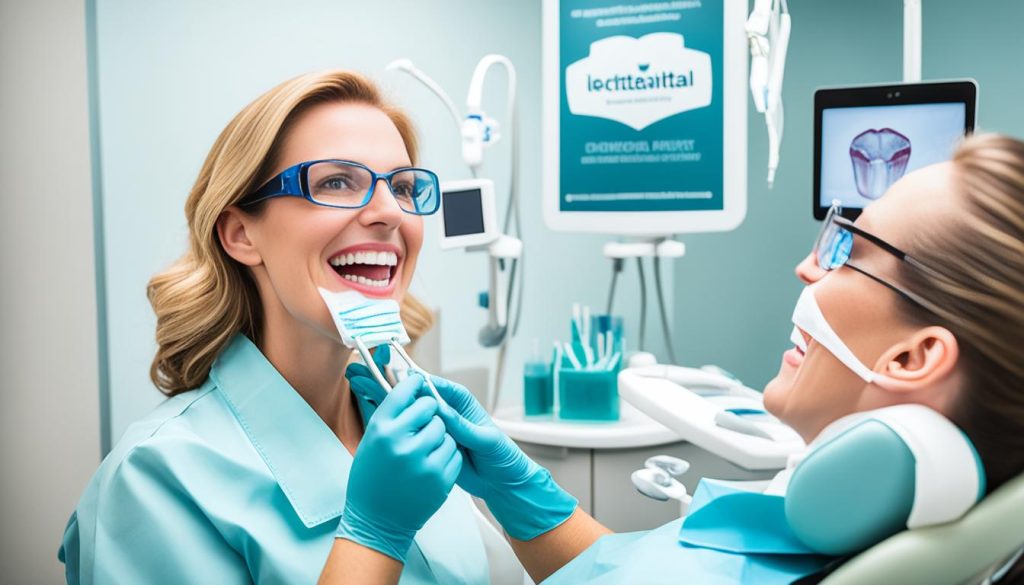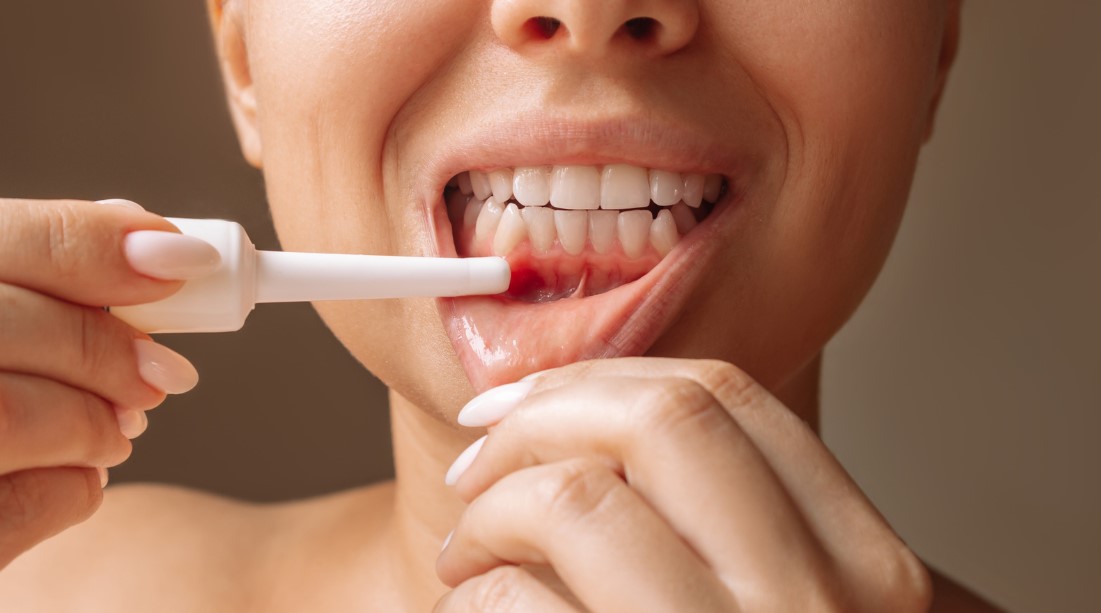Gum disease, also known as periodontal disease, is a common condition that affects the health of the gums. If left untreated, it can lead to redness, swelling, bleeding, and discomfort, and even result in tooth loss. While visiting a dentist is important for proper treatment, there are steps you can take at home to cure gum disease and maintain good oral health.
By adopting a holistic approach to gum disease, you can effectively treat it without a dentist. This article will guide you through the process of addressing gum disease naturally and preventing its recurrence. We will explore self-care practices, remedies, and the importance of regular dental check-ups to ensure optimal oral health.
The Importance of Treating Gum Disease
Gum disease, or periodontal disease, is a common condition that affects the health of the gums. It is caused by the accumulation of plaque on the teeth, which eventually hardens into tartar. If left untreated, gum disease can lead to redness, swelling, bleeding, and discomfort, and can even result in tooth loss and other health issues. Treating gum disease is essential for maintaining oral health and preventing further damage.
When plaque builds up on the teeth, it releases harmful bacteria that can irritate the gums and cause inflammation. This early stage of gum disease is known as gingivitis. If not addressed, gingivitis can progress into periodontitis, a more severe form of gum disease that affects the supporting structures of the teeth, including the gums, bone, and ligaments.
Gum disease can have serious implications for oral health and overall well-being. The bacteria in plaque and tartar can lead to chronic inflammation, which not only affects the gums but can also contribute to systemic health issues such as heart disease, diabetes, and respiratory diseases.
Regular oral hygiene practices, such as brushing and flossing, can help remove plaque and prevent the development of gum disease. However, if gum disease has already developed, it is crucial to seek treatment to halt its progression and restore oral health.
Treating gum disease typically involves a combination of professional dental care and at-home self-care. A dentist or oral hygienist may perform a thorough cleaning to remove plaque and tartar from the teeth and below the gumline. They may also provide personalized advice on oral hygiene practices and recommend any necessary treatments, such as antibiotics or deep cleaning procedures.
In addition to professional treatment, maintaining good oral hygiene at home is vital in preventing gum disease. This includes brushing at least twice a day with a fluoride toothpaste, flossing daily, and using an antiseptic mouthwash. Regular dental check-ups are also essential for early detection and prevention of gum disease.
By taking proactive steps to treat and prevent gum disease, individuals can safeguard their oral health and reduce the risk of related health complications. It is important to prioritize oral hygiene and seek professional care when necessary to maintain a healthy mouth and overall well-being.

The Link Between Gum Disease and Overall Health
Gum disease is not just a problem confined to the mouth; it has been linked to various systemic health conditions. The same bacteria that cause gum disease can enter the bloodstream and contribute to the development or worsening of other conditions, including:
- Heart disease
- Diabetes
- Respiratory diseases
- Stroke
- Pregnancy complications
Research suggests that the chronic inflammation associated with gum disease may play a role in these connections. By treating and preventing gum disease, individuals can potentially reduce the risk of these systemic health conditions and improve their overall well-being.
How to Cure Gum Disease without a Dentist?
If you’re looking to cure gum disease without visiting a dentist, there are several effective steps you can take at home. By implementing these remedies and practices, you can improve your oral health and prevent gum disease from progressing.
- Maintain Good Oral Hygiene: One of the most important steps in curing gum disease at home is to maintain good oral hygiene. This includes brushing your teeth at least twice a day with a soft-bristled toothbrush and fluoride toothpaste. Be sure to brush along the gumline to remove plaque and bacteria.
- Floss Daily: Regular flossing is crucial for removing plaque and food particles from between your teeth and along the gumline. Floss at least once a day using a gentle back-and-forth motion.
- Use an Antiseptic Mouthwash: Rinse your mouth with an antiseptic mouthwash to kill bacteria and reduce inflammation. Look for a mouthwash that contains antimicrobial ingredients to effectively combat gum disease.
- Apply a Saltwater Rinse: Saltwater rinses can help reduce inflammation and promote healing. Mix half a teaspoon of salt in a glass of warm water and swish it around your mouth for 30 seconds before spitting it out.
- Eat a Balanced Diet: A healthy diet plays a significant role in preventing gum disease and promoting gum health. Include foods rich in vitamins C and D, calcium, and omega-3 fatty acids to support your gum tissues.
- Avoid Tobacco Products: Smoking and using other tobacco products can increase the risk of gum disease and delay the healing process. Quitting smoking can greatly improve your oral health and overall well-being.
- Manage Stress: Stress can weaken the immune system and contribute to gum disease. Practice stress management techniques such as deep breathing, meditation, or engaging in activities you enjoy.
By following these steps and maintaining a consistent oral hygiene routine, you can effectively cure gum disease at home and prevent its recurrence. However, if your gum disease symptoms persist or worsen, it is important to seek professional dental care for a proper evaluation and treatment plan.

Natural Remedies for Gum Disease
In addition to the steps mentioned above, there are several natural remedies that can help treat gum disease. These remedies focus on reducing inflammation, promoting gum health, and preventing the progression of gum disease.
1. Saltwater Rinse
A saltwater rinse is a simple and effective way to reduce inflammation and kill bacteria in the mouth. Mix half a teaspoon of salt with warm water and swish it around your mouth for about 30 seconds. Spit out the solution and repeat a few times a day.
2. Tea Tree Oil
Tea tree oil has natural antimicrobial properties that can help combat the bacteria causing gum disease. Dilute a few drops of tea tree oil with a carrier oil, like coconut oil, and massage it into your gums. Leave it on for a few minutes before rinsing your mouth.
3. Aloe Vera Gel
Aloe vera gel has soothing properties that can help reduce inflammation and promote healing. Apply a small amount of aloe vera gel directly to your gums and massage gently. Leave it on for a few minutes and rinse your mouth with water.
4. Oil Pulling
Oil pulling is an ancient Ayurvedic practice that involves swishing oil in your mouth to remove bacteria and promote oral health. Use coconut oil or sesame oil and swish it around your mouth for 15-20 minutes. Spit out the oil and rinse your mouth thoroughly.
5. Green Tea
Green tea contains antioxidants that can help reduce inflammation and fight bacteria. Drink a cup of unsweetened green tea daily to support gum health. You can also use cold green tea as a mouthwash.
These natural remedies can provide relief and support the healing process for gum disease. However, it’s important to note that they should not replace professional dental care. It’s still essential to consult with a dentist for a proper diagnosis and treatment plan. Natural remedies can be used as a complement to holistic gum disease treatment and oral hygiene practices.
| Natural Remedies | Description |
|---|---|
| Saltwater Rinse | A simple and effective way to reduce inflammation and kill bacteria in the mouth. Mix half a teaspoon of salt with warm water and swish it around your mouth for about 30 seconds. |
| Tea Tree Oil | Tea tree oil has natural antimicrobial properties that can help combat the bacteria causing gum disease. Dilute a few drops of tea tree oil with a carrier oil and massage it into your gums. |
| Aloe Vera Gel | Aloe vera gel has soothing properties that can help reduce inflammation and promote healing. Apply a small amount of aloe vera gel directly to your gums and massage gently. |
| Oil Pulling | An ancient Ayurvedic practice that involves swishing oil in your mouth to remove bacteria and promote oral health. Use coconut oil or sesame oil and swish it around your mouth for 15-20 minutes. |
| Green Tea | Green tea contains antioxidants that can help reduce inflammation and fight bacteria. Drink a cup of unsweetened green tea daily to support gum health. |

The Importance of Regular Dental Check-ups
While it is possible to treat gum disease at home, regular dental check-ups and cleanings are crucial for maintaining optimal oral health. Seeing a dentist or dental hygienist every 3 to 6 months allows for professional cleaning, early detection of gum disease, and personalized advice for maintaining healthy gums. Home remedies should be seen as a complement to professional dental care, rather than a substitute.
Regular dental check-ups play a vital role in preserving oral health and preventing the progression of gum disease. Here are a few reasons why regular dental visits are essential:
- Professional Cleaning: During a dental check-up, the dental hygienist will thoroughly clean your teeth, removing tartar and plaque buildup that cannot be effectively removed through daily brushing and flossing. This helps prevent the further development of gum disease and keeps your teeth and gums healthy.
- Early Detection of Gum Disease: Dentists are experienced in identifying the early signs of gum disease, such as redness, swelling, bleeding gums, and pockets between the teeth and gums. Detecting these signs early allows for prompt treatment and prevents the disease from progressing to more severe stages.
- Personalized Advice: Dental professionals can provide personalized advice on oral hygiene practices and lifestyle changes that can help prevent gum disease and maintain overall oral health. They can guide you on proper brushing and flossing techniques, recommend suitable dental products, and address any concerns or questions you may have.
- Treatment of Gum Disease: If gum disease is detected during a check-up, dentists can provide the appropriate treatment, including scaling and root planing or other gum disease treatment options, to effectively manage the condition and prevent further damage to your gums and teeth.
Remember, regular dental check-ups are not only essential for treating existing gum disease but also for preventing its occurrence. By combining professional dental care with effective home care practices, you can significantly reduce the risk of gum disease and maintain a healthy smile.
Image:

Conclusion
In conclusion, effective gum disease treatment can be achieved at home through a holistic approach. By embracing good oral hygiene practices, utilizing natural remedies, and prioritizing regular dental check-ups, you can successfully cure gum disease and minimize the likelihood of its recurrence. Maintaining your oral health is of utmost importance, as it serves as a vital foundation for overall well-being and can help prevent more serious health issues down the line.
Implementing self-care for gum disease involves establishing a consistent routine that includes brushing your teeth at least twice a day with a fluoride toothpaste, flossing daily to remove plaque and debris from between your teeth, and using an antiseptic mouthwash to reduce bacteria. Besides, natural remedies such as rinsing with saltwater or using aloe vera gel can provide relief and aid in healing.
While self-care is essential, it is crucial to recognize that regular dental check-ups are a significant component of gum disease treatment. These routine visits, typically every 3 to 6 months, allow dental professionals to perform thorough cleanings, identify early signs of gum disease, and provide personalized guidance to maintain healthy gums. If you experience severe symptoms or find that home remedies are not yielding the desired results, it is important to consult with a dentist promptly for further evaluation and comprehensive care.
FAQs
Can gum disease be cured without a dentist?
Yes, gum disease can be effectively treated at home without the need for a dentist. By implementing certain remedies and self-care practices, you can cure gum disease naturally.
What is gum disease?
Gum disease, also known as periodontal disease, is a common condition that affects the health of the gums. It is caused by the accumulation of plaque on the teeth, which eventually hardens into tartar.
How often should I have dental check-ups?
It is recommended to have dental check-ups and cleanings every 3 to 6 months to maintain optimal oral health. This allows for professional cleaning, early detection of gum disease, and personalized advice for maintaining healthy gums.

